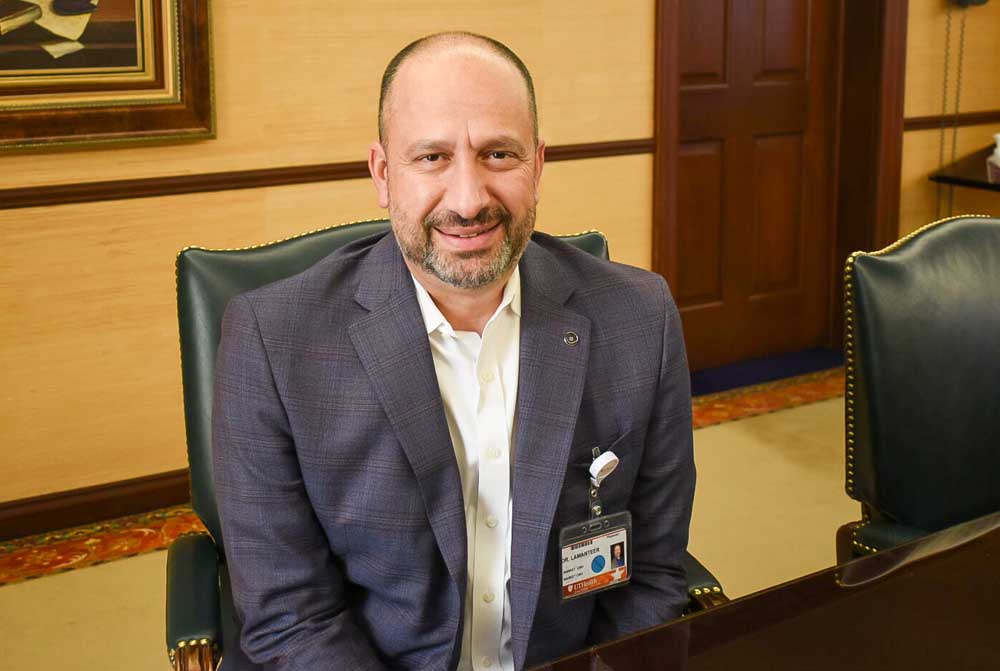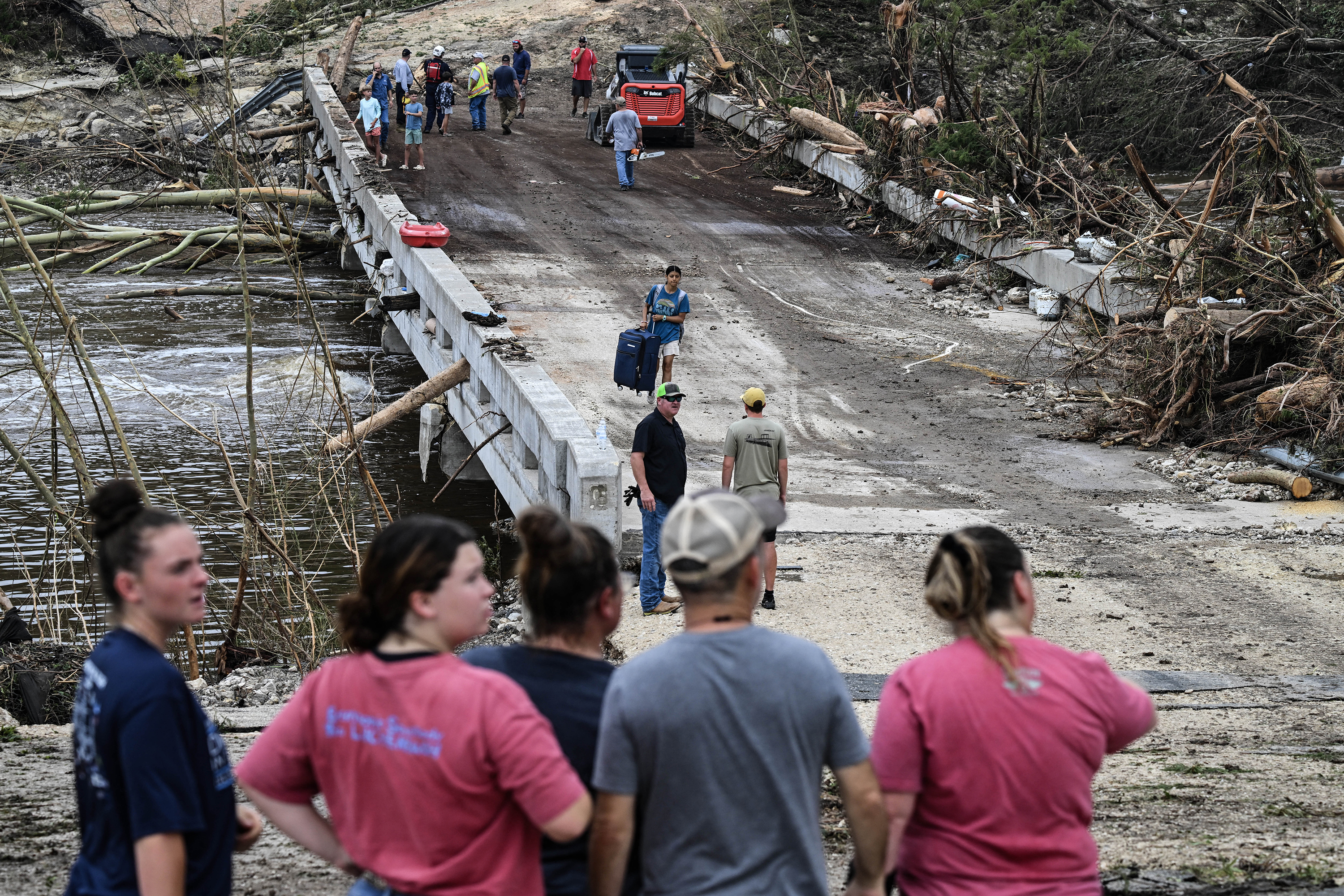East Texas hospitals take steps to conserve amid IV shortages caused by Hurricane Helene
Published 5:35 am Friday, October 18, 2024

- Dr. Michael Lamanteer, Chief Medical Director at UT Health East Texas Tyler, sits at a table at UT Health East Texas Tyler.
Hospitals across the nation were impacted after a plant supplying over 60% of IV fluids in the United States was hit hard by Hurricane Helene. Locally, hospitals in East Texas are finding ways to meet patients’ needs and adhere to protocols to ensure they have IV fluids for emergencies.
On Oct. 9, the U.S. Food and Drug Administration approved the shipment of international IV fluids from Ireland, China, Canada and the United Kingdom to help hospitals amid the IV fluids supply shortage. Additionally on Thursday, the Biden Administration invoked wartime powers through the Defense Production Act to speed up rebuilding the factory, according to CBS News.
IV supplies are expected to be back at typical levels at children’s hospitals across the United States. However, adult hospitals likely will not see the same timeline, according to Smith County Health Authority Dr. Valerie Smith.
“Adult hospitals will still have a lag, and there’ll still be some limited supply, probably through up until through the holidays at least,” Smith said.
Hospitals in Public Health Region 4 — which includes Gregg, Smith, Wood and Harrison counties — have not had to delay procedures. However, one system sent a guidance to providers to be “judicious” when ordering IV fluids, according to Smith.
IV fluids are used to help patients hydrate. Hospitals also use IV fluids in conjunction with other medications.
Many procedures performed in hospital settings are considered elective. Although these surgeries are necessary, they are scheduled surgeries such as orthopedic. Due to the impact of the IV supplies shortage, these surgeries will have to be postponed at many hospitals. In order to conserve IV fluids for critical surgeries, such as appendicitis, appendectomy, trauma surgeries, these procedures are being done differently.
At UT Health East Texas, providers are being asked to minimize the use of fluids by utilizing less volume. During a shortage, it is vital to preserve the fluids to ensure they are available for patients.
UT Health East Texas Chief Medical Officer Michael Lamanteer says while UT Health is monitoring the shortage, the health system isn’t having any direct effects.
“We’re aware of and closely monitoring the national shortage of IV fluids. To date, we have not been directly impacted,” Lamanteer said. “However, we are joining hospitals across the country to implement conservation plans to avoid overstocking and waste. We will continue working with our vendor to secure our full allotment and do not anticipate any disruption in services at this time.”
Titus Regional Medical Center, located in Mount Pleasant, has taken efforts to ensure its supply of IV fluids. An amount expected to last seven days if it continued using it the same way would last amid the shortage.
“For us, locally, there is light at the end of the tunnel,” Titus Regional Chief Medical Officer Dr. William Hooks said. “We are seeing some positive changes, and barring some other natural disaster in that region, I think we’re over the hump … and that we’ll be OK between our strategy and their increased production.”
Once the hospital found out it would be getting 50% less than its normal shipment of IV fluids, staff gathered to figure out how to extend their supply.
“As soon as we got the news and we knew we weren’t going to get our allotment, we literally, by the next day, had reduced by 50%,” said Titus Regional Chief Nursing Officer Kathy Griffis.
After seeking feedback from the community and coming up with ideas, Titus Regional found multiple ways to meet patients’ needs and save its supply for emergency situations. Hooks suggested they use colloids, also called volume expanders.
In surgery and procedures areas, it is common to hang a liter bag of fluids. However because there is a shortage of those specific fluids, they came up with a different solution. Instead, they opted not to run the fluids after placing an IV and used 100 milliliters bags. This gives them the ability to use the fluid as needed to flush patients with medicine.
“We’ve been really diligent and smart about how much maintenance type of fluid the patient might need, which is a good practice anyway,” Hooks said. “If people don’t need fluids through their IV, then why do we need to give it to them? So we really looked at what the patients needed.”
Another alternative is using IV medications with saline syringes. Although the recommendations for surgery patients have been in place to hydrate beforehand, they are reminding surgery patients to drink clear fluids up to two hours before surgery. This helps avoid the need for IV fluids after.
They also looked at other IV fluid alternatives such as hespan, or the generic hetastarch, and albumin. For labor and delivery, Titus increased its stock of pre-mixed pitocin mixtures for patients.
“We weren’t having to mix our own and use our precious IV fluid bags and add medication to it, making it less versatile and how we can use that,” Hooks said. “And so that helped mitigate some of our IV fluid usage.”
Titus has had to do mitigating efforts for both irrigation fluids — which come in 1 liter, 3 liter bags — and IV fluids — which come in 100, 250, 500, 1,000 milliliter and 1 liter bags. Hurricane Helene impacted both leading to both being on backorder.
For urology surgeries, the bladder has to be continuously irrigated with fluids — this can mean using 20 bags. Because of the shortage, they opted to postpone two surgeries requiring irrigation fluids so they would have them in case someone came in for an emergency.
After postponing two surgeries, Titus was able to acquire the specific fluids it needed and reschedule the surgeries.
Natural disasters and public health emergencies show the need for planning to prevent supply shortages. Both Hooks and Smith believe it is important to diversify manufacturing to help avoid shortages. Ahead of Hurricane Milton, IV fluids were moved from a facility in Tampa Bay. Although the plant was not affected, the workers were. The facility will not be fully running until later.
“We will have to think a little bit more broadly as far as having a diversity of sources for those things and having those plans available, should something like that happen again,” Smith said. “East Texans know, as well as anyone else in the world, that severe weather is more a question of when than if? And so being able to be prepared for that.”






